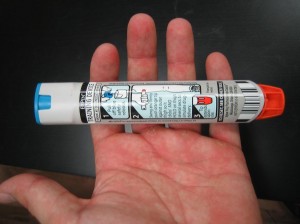Even though hornets are not aggressive, they can become defensive if they feel threatened or their nest. Always remember that hornets sends signals to other hornets, thus you might face a lot of hornets that can sting repeatedly. This will only make the symptoms worse or trigger a severe allergic reaction among individuals who are allergic to the hornet venom. Always remember that once an individual sustains a hornet sting, the body will surely react to the venom.
No one wants to be stung by an insect, especially a hornet. They will only become aggressive when protecting their nest. Always bear in mind that hornet primarily stings for the main objective of killing its prey and that sting contains a smaller amount of venom that those produced by bees. Nevertheless, a hornet is capable of delivering multiple stings without being injured or affected, thus making it a nasty insect to play with. If possible, steer clear from their nest if there is one in the surroundings. Once an individual is stung, the hornet will inject protein-based venom into the skin that causes pain right away. A certain type of reaction is expected, but an allergic reaction would require immediate attention.
How the body reacts
After a hornet delivers a sting, it is normal for the individual to experience pain, redness, swelling and itchiness at the sting site. This is considered as the response of the body to inform you that something is not right. Nevertheless, if the symptoms of a hornet sting are more severe than just an irritation, there is likelihood that the individual is experiencing an allergic reaction.
How an allergic reaction occurs

Always bear in mind that an allergic reaction to any type of sting can occur once the immune system of the body overreacts to the allergens present in the venom. The body will go into a defensive mode against the venom. A minor allergic reaction will result to swelling and itchiness at the sting site, low fever, fatigue and even nausea. Even though the reaction might seem extreme, it will not require medical attention.
A severe reaction to the sting will spread all over the body which is called as anaphylaxis. The individual will feel faint, experience difficulty breathing; pass out, tongue swelling, coughing, wheezing, confusion and shock. If it is not treated right away, it can even lead to death. The reaction time for the symptoms to manifest can range for a few seconds up to 20 minutes. Always remember that emergency care is required if this reaction takes place.
The timely administration of epinephrine can help minimize the symptoms of a severe allergic reaction to the hornet sting. This is the reason why some individual always bring an EpiPen wherever they go. It is injected into the thigh once the signs of an allergic reaction manifests. Once the epinephrine shot is given, the individual must be taken to the hospital.
